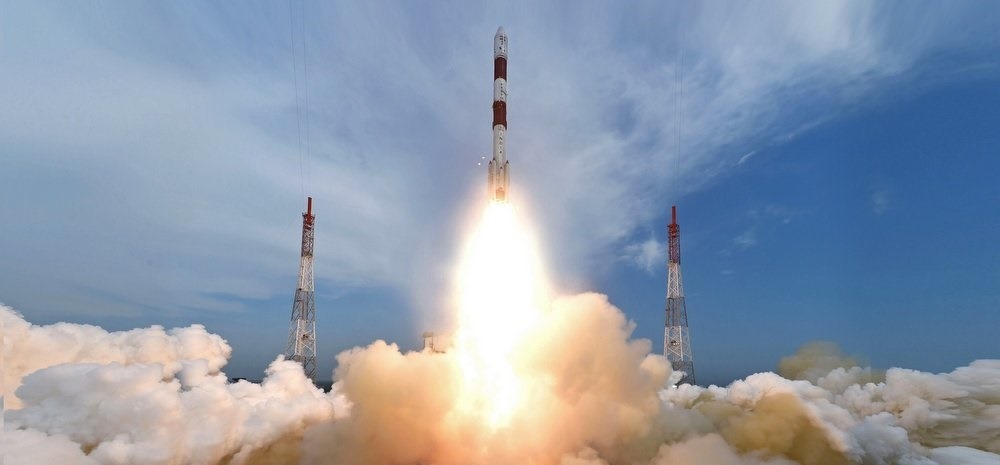ISRO Will Launch IRNSS-1H Today – India’s First Navigation Satellite
Today, ISRO will launch navigation satellite IRNSS-1H from Sriharikota

Today, at exactly 7 PM, ISRO will launch navigation satellite IRNSS-1H from Satish Dhawan Space Centre at Sriharikota. This marks a new page, a quantum leap for Indian space program, as this would be India’s first navigation satellite, built by private sector company.
This has several implications – primarily being that ISRO has finally accepted the new reality of space programs, and have willingly allowed to diminish their participation and control over creation of satellites, and programs for space.
The Importance of IRNSS-1H ISRO Launch
Today’s launch of 1,425-kg satellite, called IRNSS-1H is crucial, because 25% of the development has been made by a consortium of private companies, led by Alpha Design Technologies, from Bengaluru.
The private companies were involved in assembling and testing of this powerful satellite, under supervision of ISRO scientists. Earlier, private companies were only allowed to provide components for satellites.
Launch vehicle PSLV-XL would power the launch of this satellite.
As per Alpha Design CMD HS Shankar, development for the next generation IRNSS-1I has already started, which will be launched in April, 2018.
ISRO chairman A S Kiran Kumar said, “For the first time, a private company has been involved in the integration of a satellite. Progressively, we will involve more and more companies in satellite assembly activities.”
As per him, the payload and the subsystems associated with the launch has been calibrated as industry standards, and verified by ISRO.
Requirement Of This Launch?
Last year, ISRO successfully launched 7th and final IRNSS Navigational Satellite, to enable India’s own navigation system, and to break US monopoly over GPS.
However, the first navigational satellite, IRNSS-1A was launched in 2013, and three atomic clocks of this satellite has stopped working.
IRNSS-1H would be launched to replace these three atomic clocks, by new clocks sourced from European aerospace manufacturer Astrium.
Explaining the requirement and the need, Tapan Misra, Director, Ahmedabad-based Space Applications Centre, said, “We need to know the position of a satellite in order to find the position of an object on earth. And to find a satellite’s position, we have to measure it with the help of time. To find the satellite’s position with an accuracy of 0.5 metre, atomic clocks are therefore used for precise timing.”
In short, if the atomic clocks are not functioning, then accuracy of distance covered would be wrong.
Under the Indian Regional Navigation Satellite System, named as NaVIC — Navigation with Indian Constellation, ISRO has imported 27 sophisticated timekeepers for its 9 satellites, at an expenditure of Rs 1420 crore.
Out of 9, 7 are already in the orbit.
By opening up the development and testing of satellites to private players, a new chapter begins for the Indian Space program. We may now witness startups developing cutting edge solutions, maybe on par with SpaceX!
Do let us know your opinions, by commenting right here.
